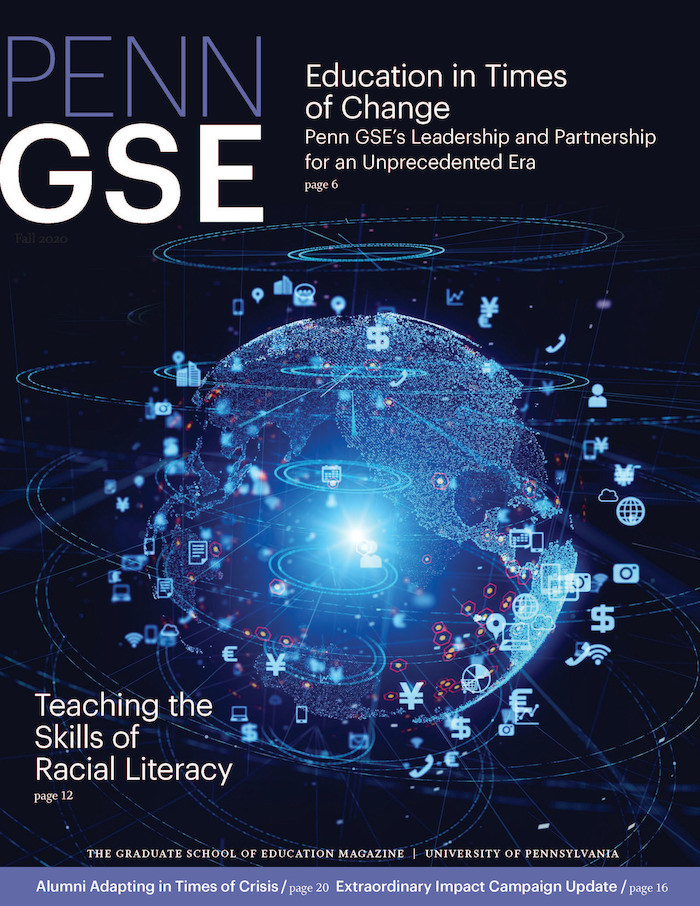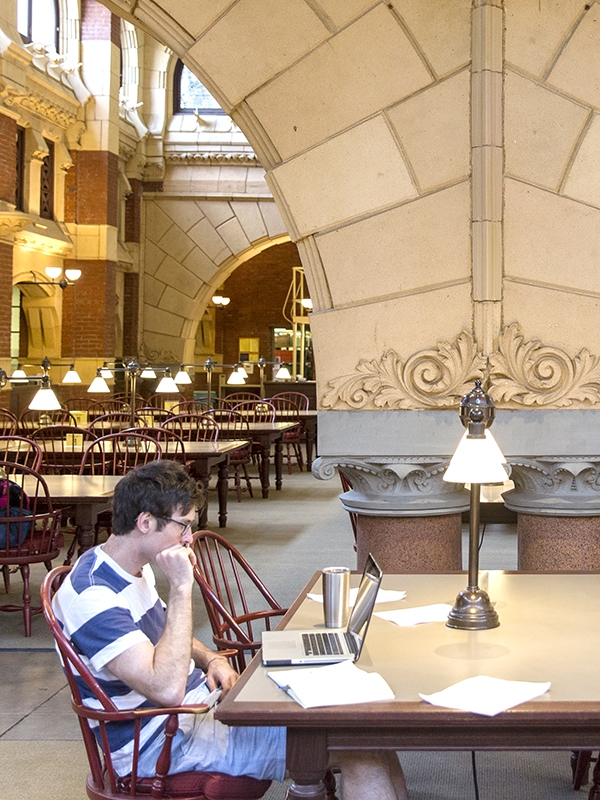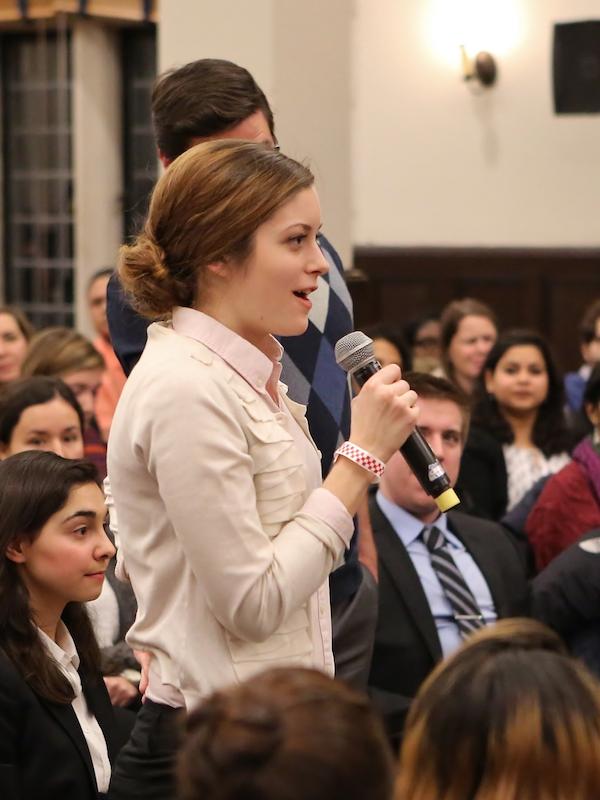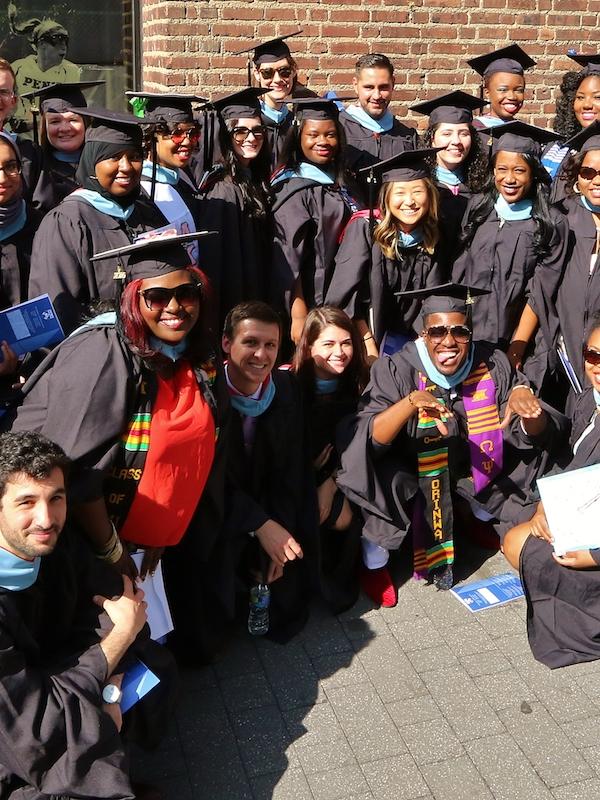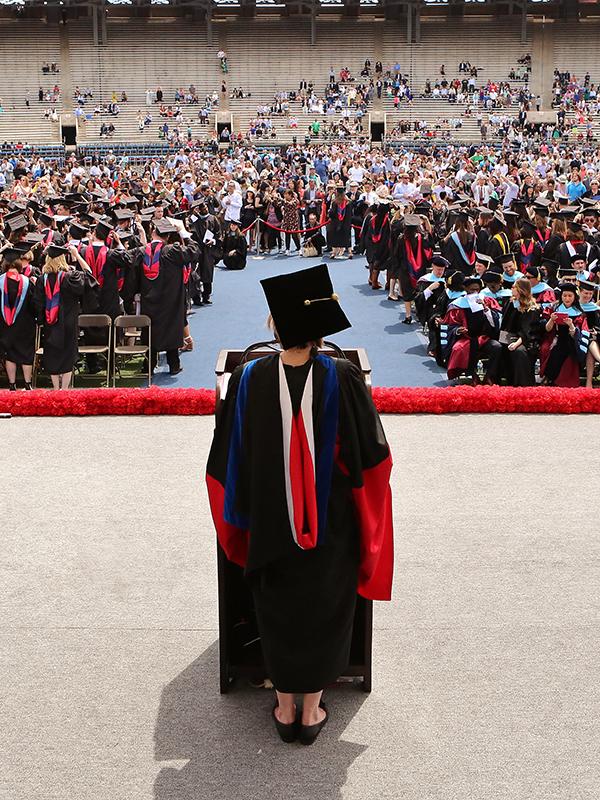Building a Community of Leaders: Penn GSE’s Chief Learning Officer Program Goes Virtual
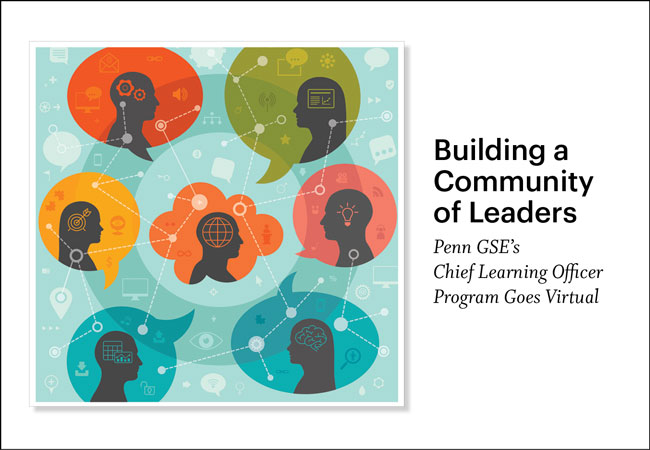
by Debbie Goldberg
When the COVID-19 pandemic started to shut the country down in mid-March, students
in Penn GSE’s Chief Learning Officer (PennCLO) program were almost due back for the second on-campus session of the spring semester. It quickly became clear that was not about to happen.
Considered a first-of-its-kind, the program prepares students to lead learning in the workplace. In corporations and nonprofits, workplace education is often managed at the highest levels by chief learning officers (CLOs), and many other leaders also view it as a top responsibility. At a host of major organizations, including General Electric, LinkedIn, IBM, Lincoln Financial Group, the U.S. Navy, the Hoover Institution, and more, PennCLO students and alumni tackle a range of challenges in employee training, talent recruitment, and organizational culture.
Part of Penn GSE’s collection of executive-format degree programs for working professionals, the PennCLO program allows students to continue working as leaders and executives while pursuing an Ed.D. degree. Under normal circumstances, students attend two immersive and intensive six-day seminars on campus each semester. In between, they undertake coursework while continuing their busy lives during the three-year program.
Without the benefit of the extended spring break that traditional programs had to prepare for the transition to virtual, and much to be accomplished within the session, Dr. Annie McKee, Penn GSE senior fellow and director of the program, worked around the clock with Penn GSE colleagues and tech gurus to redesign the week.
“We quickly had to figure out the technology, the pedagogy,” McKee says. “In all of the organizations and crises I have experienced, I have never seen a team pull together as our team did.” The result was scheduling, technology, and content that brought together a dozen or so faculty members and presenters from Penn and other institutions around the world, as well as some thirty students, also from a variety of locations and time zones.
“The virtual environment has given me a bigger voice than I had in person. I speak out more. In class I’m usually really quiet.” —Keaston Simmons
One of the students, Keaston Simmons of Winchester, Tennessee, currently resides in Roseville, California. His multifaceted career includes ten years of active duty service with the United States Air Force and half a decade of private-sector consulting for U.S. federal government agencies, including the National Park Service and National Institutes of Health. He teaches contract performance law at the University of California, Irvine, and serves in the California Air National Guard. He enrolled in the PennCLO program last fall, drawn to the opportunity to learn more about educational pedagogy and elevate his teaching skills, and reports he has gained much more.
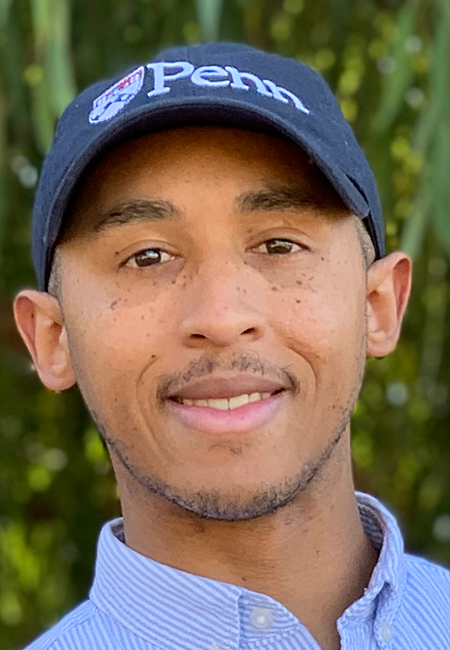
“This program has been transformative for me,” says Simmons, noting that it has helped him develop research interests in how curiosity and creativity fuel cultural transformation, as well as how venture capital and philanthropy facilitate civic and social innovation.
For Simmons, the transition to virtual has provided an unexpected upside thanks to the chat box functionality that is now a part of the learning experience. “The virtual environment has given me a bigger voice than I had in person,” he says. “I speak out more. In class I’m usually really quiet.”
Student Lauren Weinstein, C’06, agrees. “We use the chat to engage with the speaker and content a lot more. The leadership does a great job playing moderator; they can stop the speaker to say, ‘Here is what I’m hearing in the chat.’ That’s been pretty transformational, being able to react in the moment.”
The chat feature is part of a larger strategy on McKee’s part to apply research on relationships in virtual environments. Studies of remote work, including that of Jennifer Neumaier, GRD’20, a graduate of the PennCLO program, show that people experience lower levels of trust online than in person. “Our challenge now, according to her study, is to get better at replicating the in-person environment online,” says McKee. To compensate for interactions that might have happened naturally in person, McKee and the PennCLO team completely redesigned the schedule. The highly structured days included regular small-group work as well as trust-building activities with themes such as gratitude, values, and personal experiences of being “at my best.” In keeping with the program’s longtime practice, faculty and staff evolved their approaches for subsequent sessions in response to student feedback, demonstrating an improvement process that students can apply when leading workplace learning.
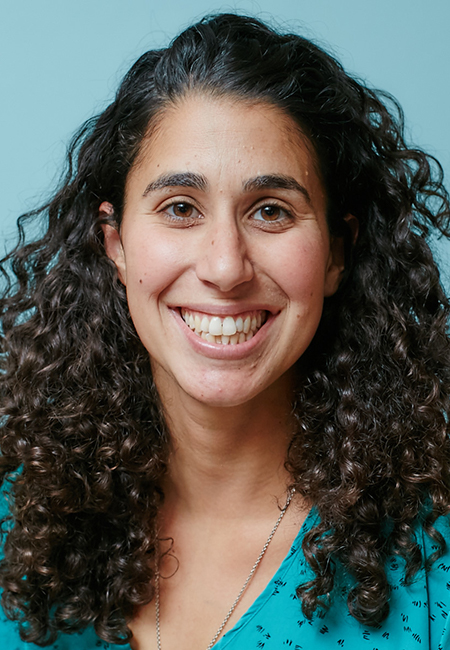
Weinstein, until recently a consultant at Raffa—Marcum’s NonProfit & Social Sector Group, enrolled in the PennCLO program last fall to take her career to the next level, particularly in the areas of talent, leadership, and coaching. After being furloughed, she started a new position this summer at Degreed, an upskilling and learning platform, based on a connection she made through a fellow PennCLO student. She now leads internal learning and development for Degreed’s five hundred employees, building a comprehensive learning strategy with a focus on leadership development and coaching.
“The PennCLO program has already helped me tremendously,” says Weinstein, who lives in Washington, DC, and is writing a book on the mindset needed to navigate a job search. “It’s putting me on a path to a senior leadership role in a company focused on people, learning, and talent.”
By mid-summer, with COVID-19 cases soaring across much of the country, Penn GSE announced that the fall semester would be online, including the PennCLO program’s two scheduled on-campus sessions. The road ahead is one in which community building will remain top of mind for McKee, who quickly brought her insights on the topic to Penn GSE colleagues as a member of the committee that aided faculty in the transition to virtual education. (See the Fall 2020 feature “Education in Times of Change: Penn GSE Provides Leadership and Partnership for an Unprecedented Era” to learn more about Penn GSE’s shift to virtual.) [Link to feature: Education in Times of Change; see folder DAR Magazine Project/Fall 2020/Issue/Documents/Features] “It is the environment, the climate, the culture in our classes that really does support students to learn,” she says.
This article appeared in the Fall 2020 issue of The Penn GSE Magazine.

